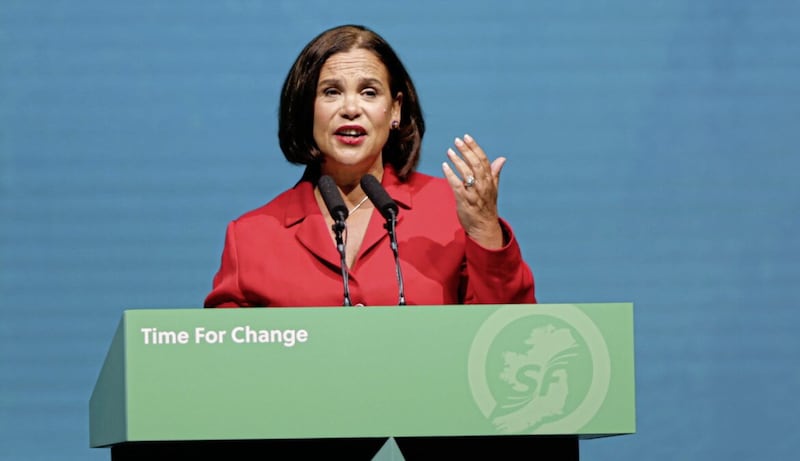It is obviously a bad sign for the new executive that the DUP pulled a last-minute switch in its choice of departments, taking education instead of finance.
Sinn Féin now holds the three economic departments of finance, infrastructure and the economy. The cynical explanation is that the DUP is dumping hard budget decisions on Sinn Féin, believing with good reason that republicans will never raise the extra revenue Stormont requires by introducing a water charge, putting up university tuition fees or even significantly increasing domestic rates.
A more charitable explanation is that the DUP saw finance as a wasted choice for any party. Peter Robinson once portrayed it as akin to the Treasury but it is really a glorified accounts and payroll department, lumbered with dry technicalities and over-exposed to blame.

Sinn Féin has an economic plan for Northern Ireland, based on productivity and growth, ultimately the only solution to a sclerotic economy. Although it is a serious plan it is also too glib an answer. Growth solves everything, so it can be another cynical way of swerving difficult decisions. If revenue will not be raised, costs must be cut – and costs should often be cut regardless.
Sinn Féin has acquiesced to a major rationalisation programme before, under the Review of Public Administration and the 2015 Fresh Start agreement. A target of 10 per cent job cuts across the public sector was seized on by the party’s left-wing opponents in Northern Ireland and by all its opponents in the Republic, but it eventually faced them down and suffered no harm whatsoever.
- The Irish News view: After Saturday’s applause and congratulations, it’s time for Stormont to deliverOpens in new window
- Is Stormont up to the job? Hope spring eternal – Tom CollinsOpens in new window
- Stormont’s in-tray: The multiple funding crises facing a new executive from health to education, the A5, policing and Casement ParkOpens in new window
Much of the programme was delivered, although savings were disappointing or non-existent due to avoidance of compulsory redundancies. Old layers of administration were simply rolled into new ones, all council jobs were guaranteed and a generous voluntary redundancy scheme for civil servants caused the wrong people to leave.
Nevertheless, Sinn Féin conceded the principle of shrinking the public sector to rebalance the economy. Far from being an embarrassment to republicans, this can serve their ultimate goal. Making Northern Ireland affordable squares the circle of advancing unification by making Northern Ireland work.
Mary Lou McDonald came close to spelling this out last month when she said Stormont should be abolished in a united Ireland to achieve “efficient and effective government” and avoid “duplication”.

This can only mean laying off layers of administrators.
It was always a daft cliché to picture Sinn Féin as a gaggle of big-state leftists who only want more public spending. The party has a base of left-wing members, activists and voters, including key new voters north and south, generally young urban liberals. But it also has a traditional rural conservative base and far more voters, old and new, in the aspirational working and middle classes. Such people tend to be sceptical about government waste and exploitation of the taxpayer, in all its forms. They would actively welcome a programme of targeted savings, if carefully presented.

A re-review of the Review of Public Administration would be a start: it has given us two health trusts in Belfast, the fiasco of the Education Authority and councils who build multiple headquarters. Few voters would take to the barricades to defend any of it.
It was always a daft cliché to picture Sinn Féin as a gaggle of big-state leftists who only want more public spending
A populist stance of slashing bureaucracy would help Sinn Féin with a trickier immediate problem: how to move to the right as it comes under pressure on immigration, without pandering to the far right. Criticism of a bloated state, unresponsive to people’s needs, would find a receptive audience. No major party in Northern Ireland or the Republic reflects what is probably the commonest view of government: vast sums are squandered on non-jobs and nonsense that only makes it harder to get anything done.
Cost-cutting Sinn Féin may be a tall ideological order but there is little doubt it could be popular, with little or no electoral risk in finding out.
Even the DUP’s voters might be quietly impressed. It used to be the party that claimed to look after public money.




